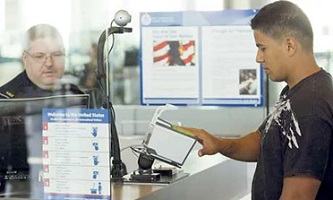Research group Frost and Sullivan has found that biometric solutions are finding considerable commercial applications in passenger screening markets. In a new report, F&S’s Aerospace & Defence Team say that as the security threat landscape evolves, the key to capturing market share is not advanced equipment but the associated support system. Screening systems used at checkpoints require service at specific intervals, which can be a challenge due to high passenger rates during seasonal travel. Therefore, there is a large market for service providers that can ensure quick parts replacement during maintenance checks.
“The passenger screening market will get a boost from the airport construction and modernisation boom in Asia-Pacific and Middle East,” said Frost & Sullivan’s Aerospace & Defence Research Analyst John Hernandez. “Additionally, countries competing to host world events will have to build infrastructure to handle the surge in tourists, which translates to massive revenue opportunities for the passenger screening market.” Global Passenger Screening Market Forecast to 2021 is part of Frost & Sullivan’s Security Growth Partnership Subscription. It finds that while passenger screening is necessary, the failure of US Transportation Security Administration (TSA) screeners to detect fake explosives has made the government take a closer look at checkpoint procedures and training. Biometric technologies are being implemented in a variety of commercial markets for use at checkpoints and border control stations.
Cell phone applications that make use of biometrics have significant potential as screening devices. Passenger screening will eventually evolve into a subtle process, wherein travellers will be screened discretely, without causing any inconvenience. This is key since the public has voiced its concerns about invasion of privacy and identity theft when using biometric technologies. “Meanwhile, retailers could promote the use of biometrics at the time of sales in order to obtain market intelligence and the ability to personalise offerings,” noted Hernandez. “In due course, the consolidation of identification documents such as passport, driver’s license, credit cards and access cards may well transform the security industry.”








